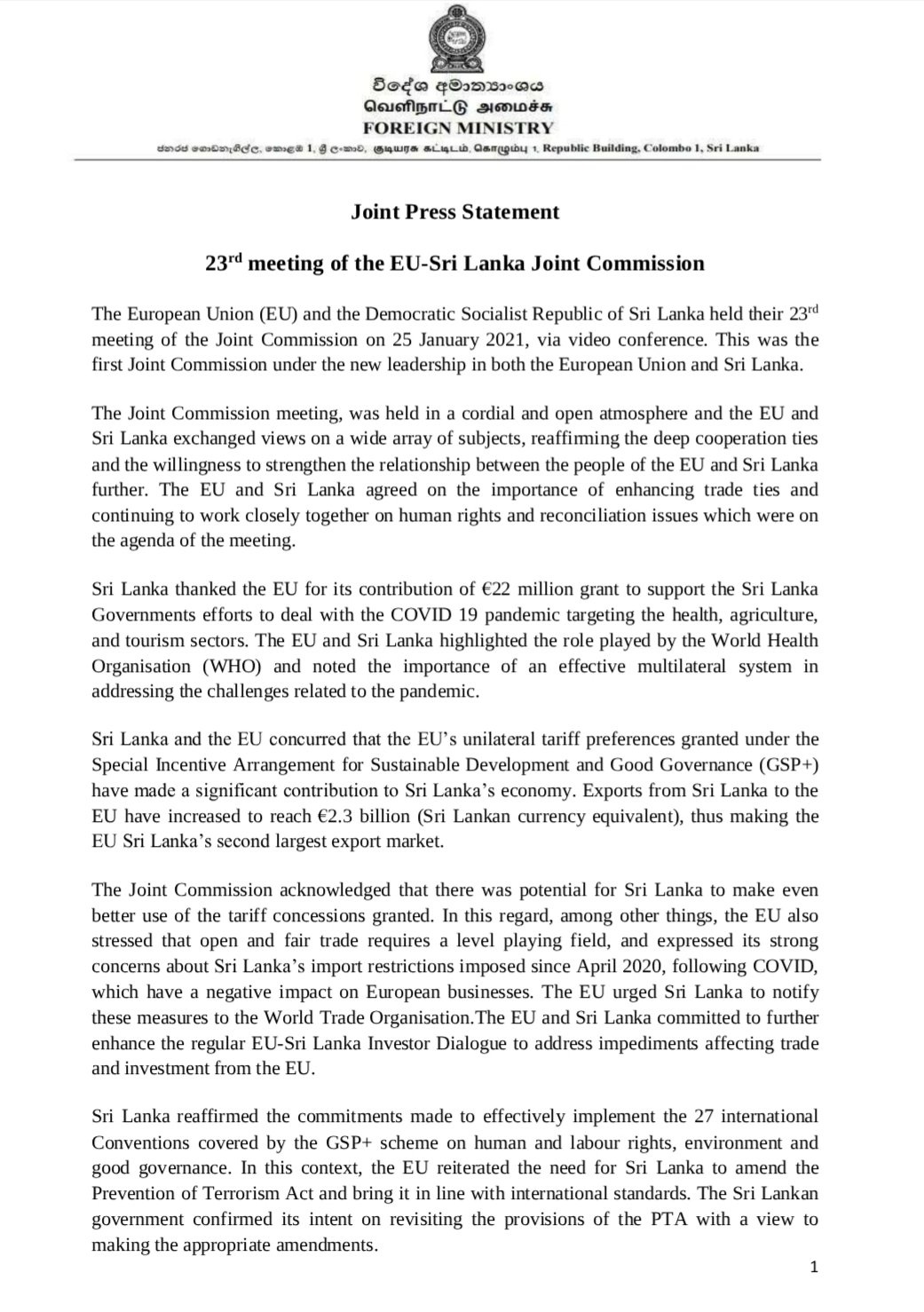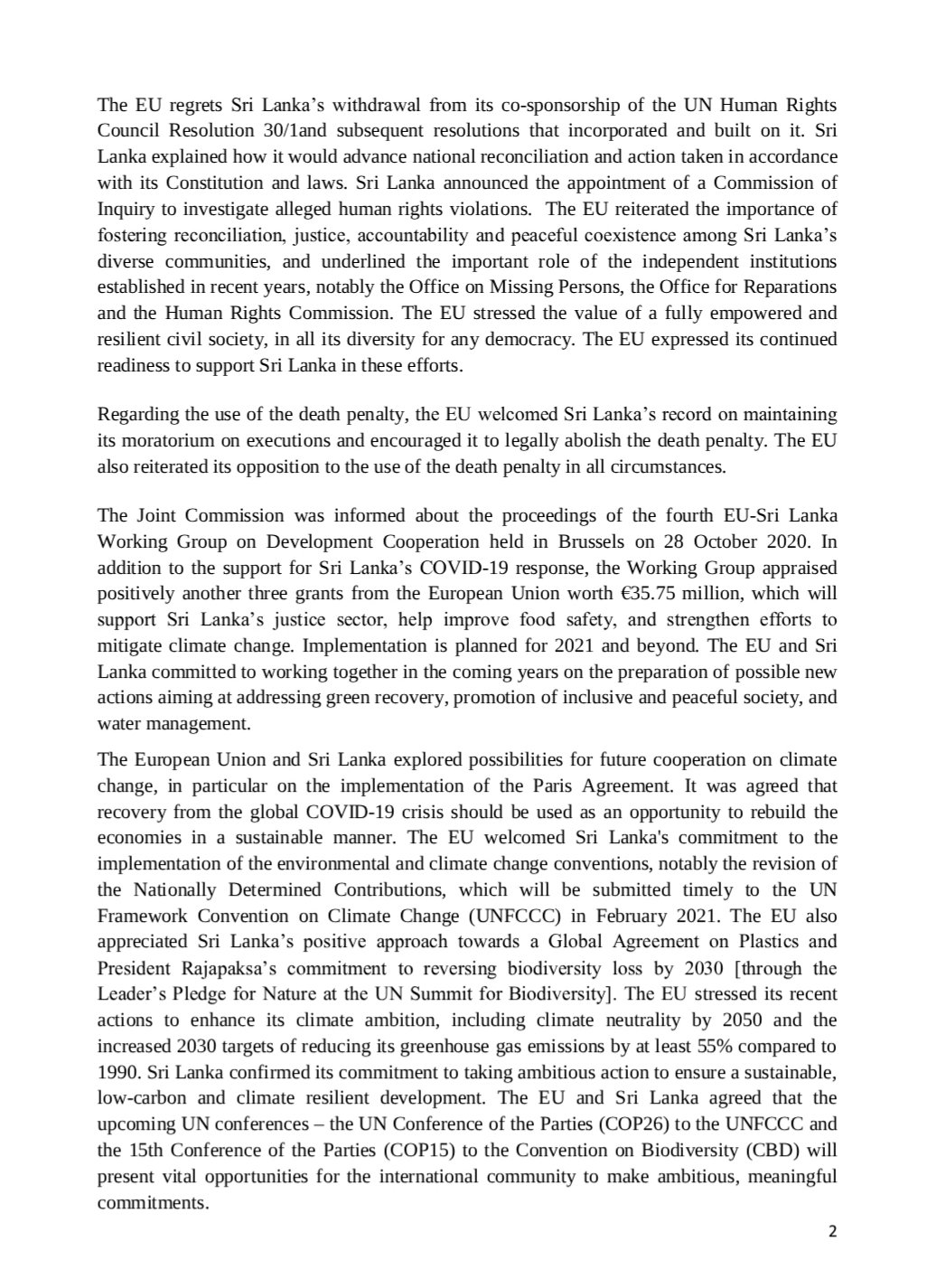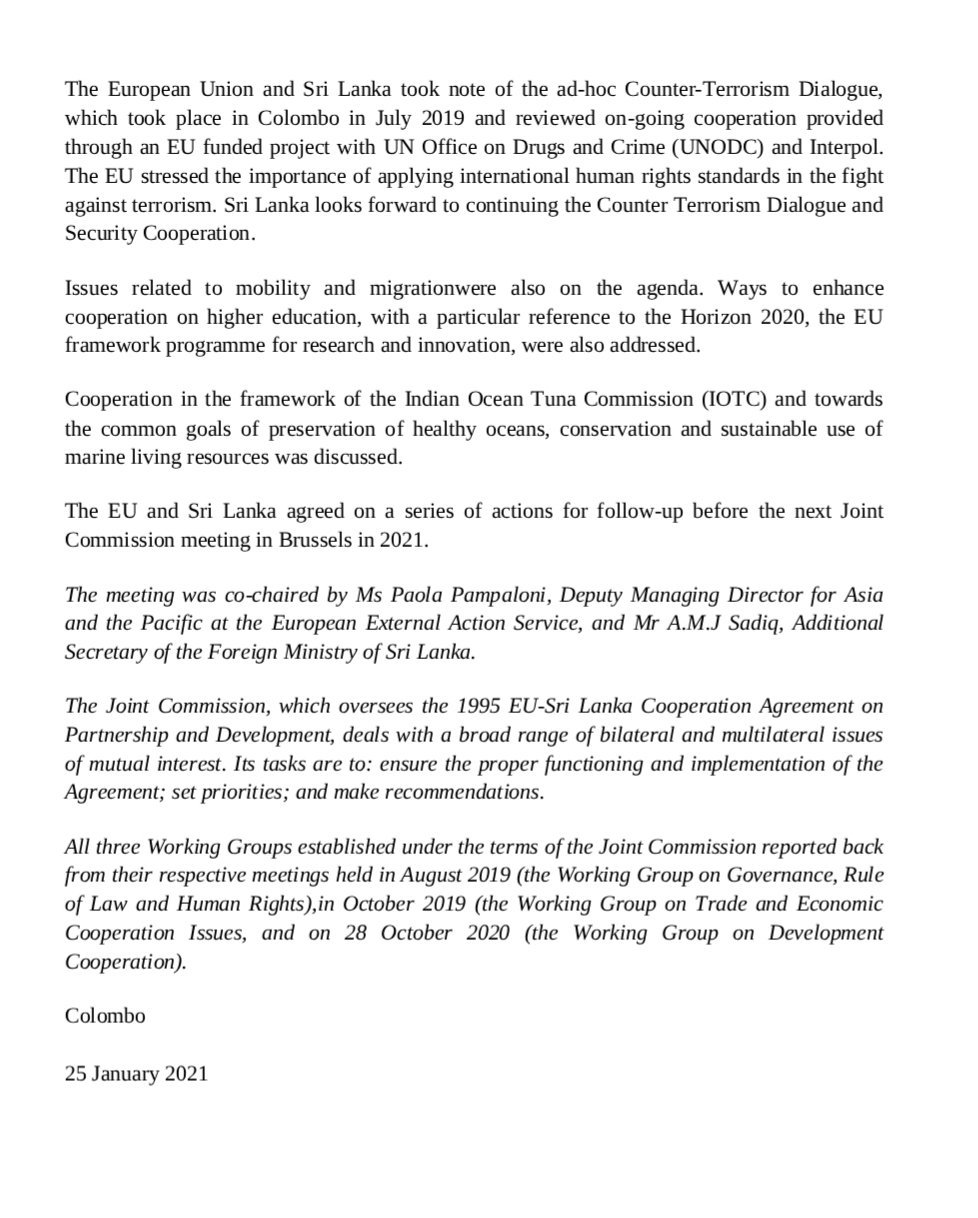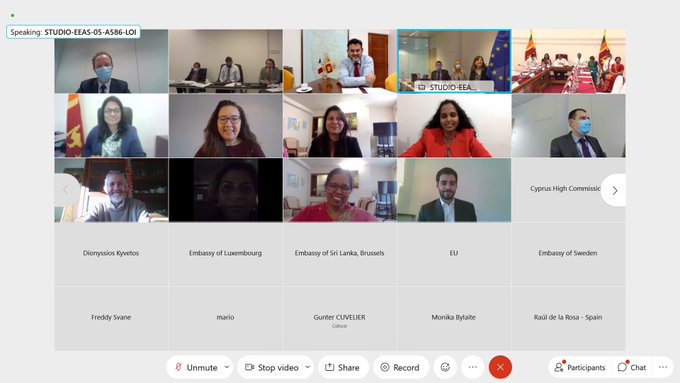The European Union (EU) received criticism after a meeting with Sri Lankan officials where it stated that trade concession would continue and referred to the Office on Missing Persons, the Office for Reparations and the Human Rights Commission in Sri Lanka as “independent institutions”, despite officials in these bodies being directly nominated and appointed by the president.
During the meeting, the EU revealed that exports from Sri Lanka to the EU have increased to reach €2.3 billion “making the EU Sri Lanka’s second largest export market”, as it continues to receive trade concessions under the GSP+ scheme.
“The EU reiterated the importance of fostering reconciliation, justice, accountability and peaceful coexistence among Sri Lanka’s diverse communities, and underlined the important role of independent institutions established in recent years, notably the Office on Missing Persons, the Office for Reparations and the Human Rights Commission,” said a EU-Sri Lanka Joint Commission statement.
Last year, former Sri Lankan Human Rights Commissioner, Ambika Satkunanathan, admitted that Sri Lanka’s Human Rights Commission could no longer be considered independent, following Gotabaya Rajapaksa’s establishment of an all Sinhalese board to the Human Rights Commission in November, under provisions of the recently passed 20th Amendment. “Legally it is no longer an independent institution because one of the key factors that determine independence is the process of appointment,” she stated.
The EU continues its favourable GSP+ trading preferences with Sri Lanka despite Sri Lanka’s continuous human rights law violations and failure to revoke the draconian Prevention of Terrorism Act (PTA), a key commitment made by Sri Lanka to secure a favourable trading relationship under the GSP+. In December the EU announced a further 22 million Euros in aid aimed at health, agriculture, and tourism industries. In the joint statement, Sri Lanka confirmed its intent on revisiting the provisions of the PTA in order to make “appropriate amendments”.
Satkunanathan wrote on the PTA in a recent article, describing how “historically, Tamils, dissenters, those critical of the government of the time, and anyone calling for accountability for human rights violations have been labelled LTTE or portrayed as threats to national security” and that "such labelling is done to create an environment the enables the state to justify any punitive action taken against them."
Last week, the EU also agreed to fund counter-terrorism training provided by the United Nations Office on Drugs and Crime (UNODC) despite on-going human rights concerns. Troels Vester, a representative of UNODC Sri Lanka and Maldives, announced the training on Twitter, specifying that the training would range from “human rights to successful convictions”.
Despite responding to the destruction of the Mullivaikal monument earlier this month stating that they were “saddened” by the act, the EU provided 8.26 billion LKR to support the country’s “justice sector, food safety, and climate change mitigation”.
Sri Lanka also announced the appointment of a Commission of Inquiry to investigate alleged human rights violations. The new commission dedicated to “finding closure to burning issues” follows several failed attempts, including the Lessons Learnt and Reconciliation Commission and the Presidential Commission to Investigate Complaints Regarding Missing Persons (Parangama Commission report).
"Sri Lanka has a long history of Commissions of Inquiry that have repeatedly failed to deliver justice and reconciliation for victims of human rights violations," Amnesty International said in response to the announcement. "Findings of past commissions have not led to any prosecutions of those responsible for atrocities." In 2009, Amnesty International published “Sri Lanka: Twenty Years of Make Believe: Sri Lanka’s Commissions of Inquiry”, a report criticizing the failure of multiple Commissions of Inquiry.
Throughout the statement, the EU makes several references to Sri Lanka’s efforts to dealing with COVID-19, and the pandemic’s impact on business, however fails to raise concerns regarding forced cremations in the name of “COVID-19 in Sri Lanka.
Read the whole statement below:



We need your support
Sri Lanka is one of the most dangerous places in the world to be a journalist. Tamil journalists are particularly at threat, with at least 41 media workers known to have been killed by the Sri Lankan state or its paramilitaries during and after the armed conflict.
Despite the risks, our team on the ground remain committed to providing detailed and accurate reporting of developments in the Tamil homeland, across the island and around the world, as well as providing expert analysis and insight from the Tamil point of view
We need your support in keeping our journalism going. Support our work today.
For more ways to donate visit https://donate.tamilguardian.com.


